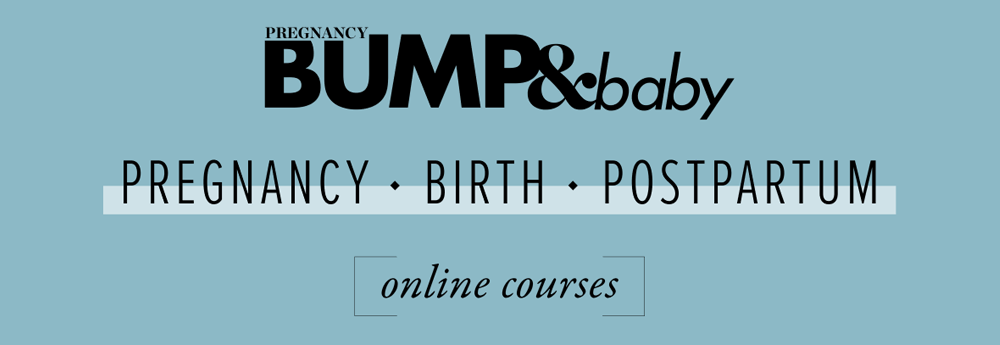
Pregnant women need more iron than usual, and here’s why.
1 Why is iron important?
Iron is used to prevent and treat anaemia. When the amount of iron in the body gets too low, the haemoglobin level falls below normal. This is known as “iron deficiency anaemia”. Haemoglobin is very important as it carries oxygen from your lungs to the rest of your body. If your haemoglobin or iron levels are low this may make you feel tired and not able to carry out your normal routine.
2 Why do I need to take iron tablets?
In pregnancy, your growing baby will need iron from the mother and this depletes the mother’s stores. It is important to replenish those stores to prevent fatigue and to have better reserves for delivery, recovery and breastfeeding. Most women will drop their iron stores during pregnancy, especially in the second half of pregnancy. This happens even in women who eat an iron-rich diet that contains meat. Women who are already iron deficient or who eat very little or no meat in their diet will almost certainly require iron supplements during pregnancy. Although some vegetables contain a lot of iron, very little of this iron can actually be absorbed.
3 How do iron tablets work?
The best way to treat low body iron levels is to take iron supplements, either as a tablet or liquid. Both of these are safe in pregnancy and are an effective and easy way to boost iron stores. The iron in the tablet helps your body make new red blood cells and prevents anaemia. Iron tablets, in the right dose, can make as much difference as adding almost a litre of blood naturally in your body within a few weeks if you are anaemic. You should start to feel a difference after taking iron tablets for just two weeks.
4 Why is having a “reserve” of iron important?
Having a good store of iron means that you will have enough iron available to make the red cells your body needs as well as the iron that is needed for your growing baby. It is also good to have a store of iron so that you can quickly replace the blood you will lose when the baby is born and are less likely to need a blood transfusion. You will need all the energy you can get when you are looking after your new baby. Low iron levels can make you feel very tired.
5 How long do I need to take iron tablets for?
Iron tablets are often needed for three to six months after your baby is born. This will depend on a lot of different factors including your diet and whether you are breastfeeding. It is important to check how long you should take them with your doctor or midwife. You might need to have blood tests to check how well the iron tablets are working for you.
6 Can increasing the iron in my diet help with low iron?
It is pretty much impossible to eat a diet that will supply you with the amount of iron that you need each day during pregnancy. By the end of pregnancy you will have very low iron stores if you don’t take iron supplements. You can certainly help by maximising the amount of iron you eat in your diet. The best sources of iron are from red meat such as lamb and beef. Chicken, pork, and fish are also good sources of iron. Eating foods with Vitamin C in them, such as oranges, lemons, strawberries, blueberries, and capsicum is a good way to boost the amount of iron your body will absorb. Avoid drinking tea and coffee with your meals as this can slow the absorption of iron from food. Vegetables like spinach and broccoli and foods like molasses and tofu do have a lot of iron in them, but we can’t get much iron out of non-meat foods.
Taking iron tablets
Choosing iron tablets with enough iron
A variety of iron tablets and tonics are available without a prescription, but many do not have enough iron in them to make a difference. If you are really low in iron, you will need to take iron tablets with the right amount of iron and will need a prescription from your doctor or midwife. The tablets prescribed by a doctor or midwife have a much higher amount of iron and are cheaper.
How do I take iron tablets?
Take as directed by your doctor or midwife (usually one tablet once or twice a day). If a tablet is needed twice a day, then your doctor or midwife may recommend starting with one a day for a few days, then increasing to twice a day. Iron is better absorbed if taken on an empty stomach, one hour before or two hours after a meal, if possible. Take iron tablets with water or juice. Do not take them with tea, coffee, cola, cocoa, or red wine as these reduce the amount of iron absorbed. Swallow the iron tablets whole; do not crush or chew them. Iron tablets should be taken two hours or more after some types of medications including antacids, calcium tablets, and some antibiotics. Check with your doctor, midwife, or pharmacist.
What side effects might I get?
Not everybody gets side effects from iron tablets. Occasionally they cause tummy upset, nausea, tummy pain, constipation, or diarrhoea. These usually improve as your body gets used to the tablets. It is normal for iron tablets to make your stools/faeces (poo) turn black. If you have other symptoms or if the symptoms above become bad or worrying, contact your doctor or midwife.
Easing side effects
Taking iron tablets with food or at night may help ease tummy upset. If constipation is a problem, increasing your daily fluid and fibre intake can help. Ask your doctor, midwife or pharmacist for advice regarding a gentle laxative if needed. Changing the type of tablet, frequency, or dose may help. You should discuss this with your doctor or midwife before making any changes. There are many iron tablets and tonics available with only very small amounts of iron in them, so they do not cause side effects. They are not strong enough to increase your iron levels quickly enough.
Other ways of giving iron
If iron tablets cannot be tolerated, especially if anaemia is significant, intravenous iron through a drip may be needed. This is not often required as the above suggestions are usually effective. Injection of iron into the muscle is not recommended as it is painful and can cause permanent skin scarring or discolouration.
Keep out of the reach of children
Iron tablets, like all medicines, should be kept in a locked cupboard out of reach and sight of children. A small amount of iron can be poisonous and can be fatal in infants and young children. Never give an adult dose to a child. If a child accidentally takes iron tablets call the Poisons Information Centre (NZ) immediately on 0800 764 766.
Sourced from Auckland district health board (nationalwomenshealth.adhb.govt.nz/health-professionals/iron-in-pregnancy)
BUMP&baby
BUMP & baby is New Zealand’s only magazine for pregnancy and early babyhood. Our team of mums and mums-to-be understand what it’s like to be pregnant in this connected age, and that’s why BUMP & Baby online is geared toward what pregnant women and new mums really want to know.
Other articles of interest
What to do (and not do) during labour
This one’s for your birth companion – anyone whom you’re planning to have in the delivery room while you’re in labour and giving birth needs to read it.
Pregnancy symptoms… For dads!
Thought it was just mums-to-be who get morning sickness, gain weight, and have mood swings? Dubbed “Couvade syndrome”, pregnancy symptom-sharing by dads-to-be is far more common than you may realise.







